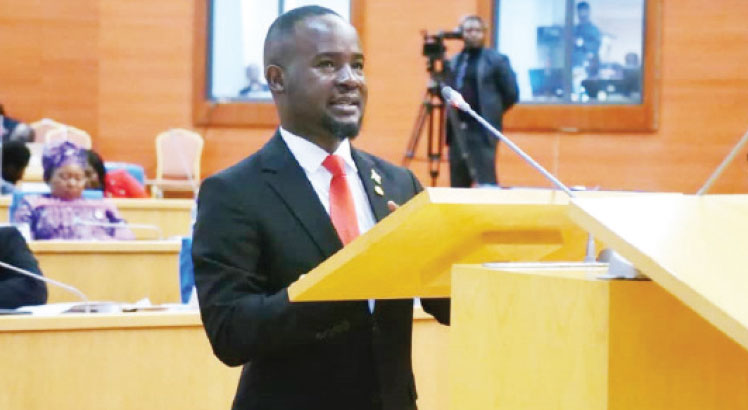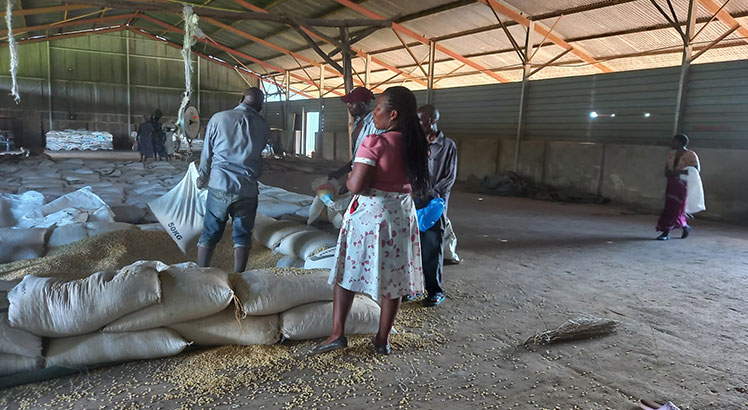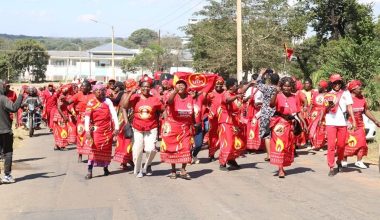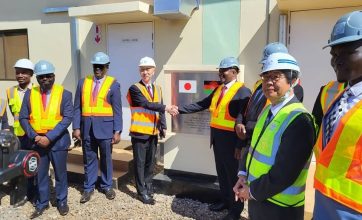A budget in denial
Minister of Finance and Economic Affairs Sosten Gwengwe yesterday presented in Parliament in Lilongwe the 2023/24 National Budget which is a bundle of contradictions.
The fourth Tonse Alliance financial roadmap preaches living within means, with the minister declaring that “our expenditures should, to a large extent, be within our domestic resources”. Ironically, at K3.87 trillion, the proposed budget is 35.7 percent more than the K2.85 trillion last year that is now estimated to balloon to K3.04 trillion by the end of this financial year on March 31.
Meanwhile, the budget expects to grow the economy by just 2.8 percent. The projected pace of growth is almost the same as the country’s population growth rate of 2.3 percent and unlikely to reduce poverty as the World Bank and other economists estimate that to have an impact on poverty, gross domestic product (GDP) must consistently expand by at least six percent per annum.
Of that total expenditure in the 2023/24 budget, roughly 34 percent or K1.3 trillion is money government does not expect to have and must be borrowed to feed its growing spending appetite that is largely on non-productive areas such as K39 billion transport allowances to civil servants, doubling honoraria for chiefs to K3.16 billion and other social spending entitlements with dubious value addition.

Gwengwe, who looked calm and composed, touted the fiscal plan to continue containing the budget deficit, currently projected at K1.32 trillion, address issues of public debt management, fiscal consolidation and ensuring prudent and efficient use of public resources to achieve value for money.
The plan also wants to achieve export diversification and import substitution by strengthening the balance of payment position as well as promoting local manufacturing sector.
The minister said the overall budget is 25 percent of GDP and out of the total expenditure, recurrent expenses are estimated at K2.98 trillion, representing 19.6 percent of GDP and 76.9 percent of the total expenditure, respectively.
On the other hand, development expenditure is pegged at K896.21 billion, an equivalent of 5.9 percent of GDP and 23.1 percent of total expenditure, representing an increase of K207.75 billion from a projected 2022/23 likely outturn of K688.45 billion.
This means that development expenditure will be composed of K600.28 billion foreign resources and K295.93 billion domestic resources.
In the financial plan, Gwengwe projected the overall deficit at K1.32 trillion, which is 8.7 percent of GDP, a rise from the previous financial year’s K884.04 billion.
The continued widening deficit runs counters one of the objectives of the budget which is to contain the deficit.
But in the statement yesterday, Gwengwe said: “Government continues to ensure that the fiscal deficit is minimised to the extent possible.”
He said the budget deficit, which is expenditure exceeding revenues, is expected to be financed through foreign borrowing amounting to K288.78 billion and domestic borrowing amounting to K1.19 trillion.
Reacting to the budget yesterday, University of Malawi economics lecturer Lucius Cassim said the widening deficit is an unfortunate occurrence, but he is not surprised with the situation Treasury has found itself in.
“We are in a very precarious situation. We seem to have appetite for borrowing,” he said.
Cassim advised Treasury to forgo things that are unnecessary expenditure and ensure that it prioritises expenditures that grow the economy rather than bleed it.
“If we reduce borrowing, it means that we will also reduce the deficit,” he said.
In the proposed fiscal plan, total revenue and grants are estimated at K2.55 trillion, representing 16.8 percent of GDP with domestic revenue projected at K2.24 trillion or 14.7 percent of GDP.
Out of the domestic revenue, tax revenue is estimated at K2.13 trillion while other revenues are estimated at K114.34 billion.
Gwengwe projected grants at K311.5 billion, which represents two percent of GDP comprising K299.07 billion from international organisations and K12.43 billion from foreign governments in form of dedicated and project grants.
In the fiscal plan, the minister has awarded civil servants an eight percent salary increase, a development which will push up the wage bill to K897 billion or 5.9 percent of the GDP and 23.2 percent of the total expenditure.
The wages and salaries bill will consume 30.4 percent of the recurrent budget.
On budget support, the minister announced that building on the ongoing discussions with the International Monetary Fund and engagements with the World Bank and the European Union (EU), there is hope for a resumption of direct budget support.
Among others, he said the World Bank has committed about $160 million (K164.8 billion), which is about 4.3 percent of the total budget, for a Development Policy Operation budget support while the EU will announce its committed amount as discussions continue.
Against the backdrop of rising public debt stock, the minister told Parliament that as at end December 2022, total public debt reached K7.9 trillion, representing 69.93 percent of GDP. Out of this stock, K4.43 trillion is domestic debt, which is 114 percent of the total budget while K3.47 trillion is external debt, an equivalent of 90 percent of the total budget.
Explaining how Treasury will deal with the increasng debt, he said government will continue its debt restructuring strategy which, through a combination of fiscal consolidation and debt treatment, is expected to bring public debt levels to moderate risk in the medium term.
The minister announced that government already engaged its external commercial creditors and is currently engaging its bilateral creditors such as China and India for a possible debt treatment.
“So far, the response has been positive. Government is also exploring debt swap arrangements to supplement restructuring and discussions are at an advanced stage,” he said.





